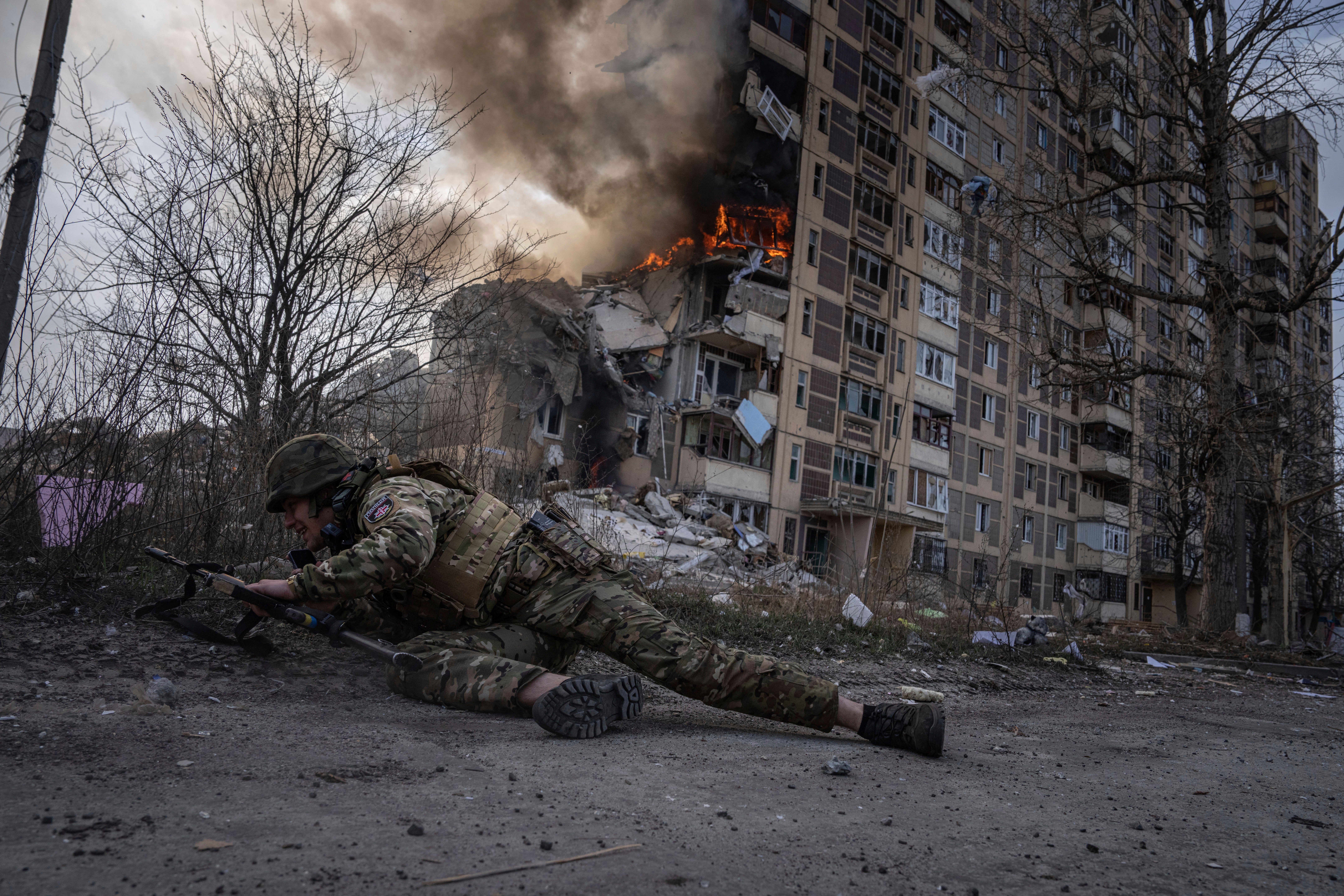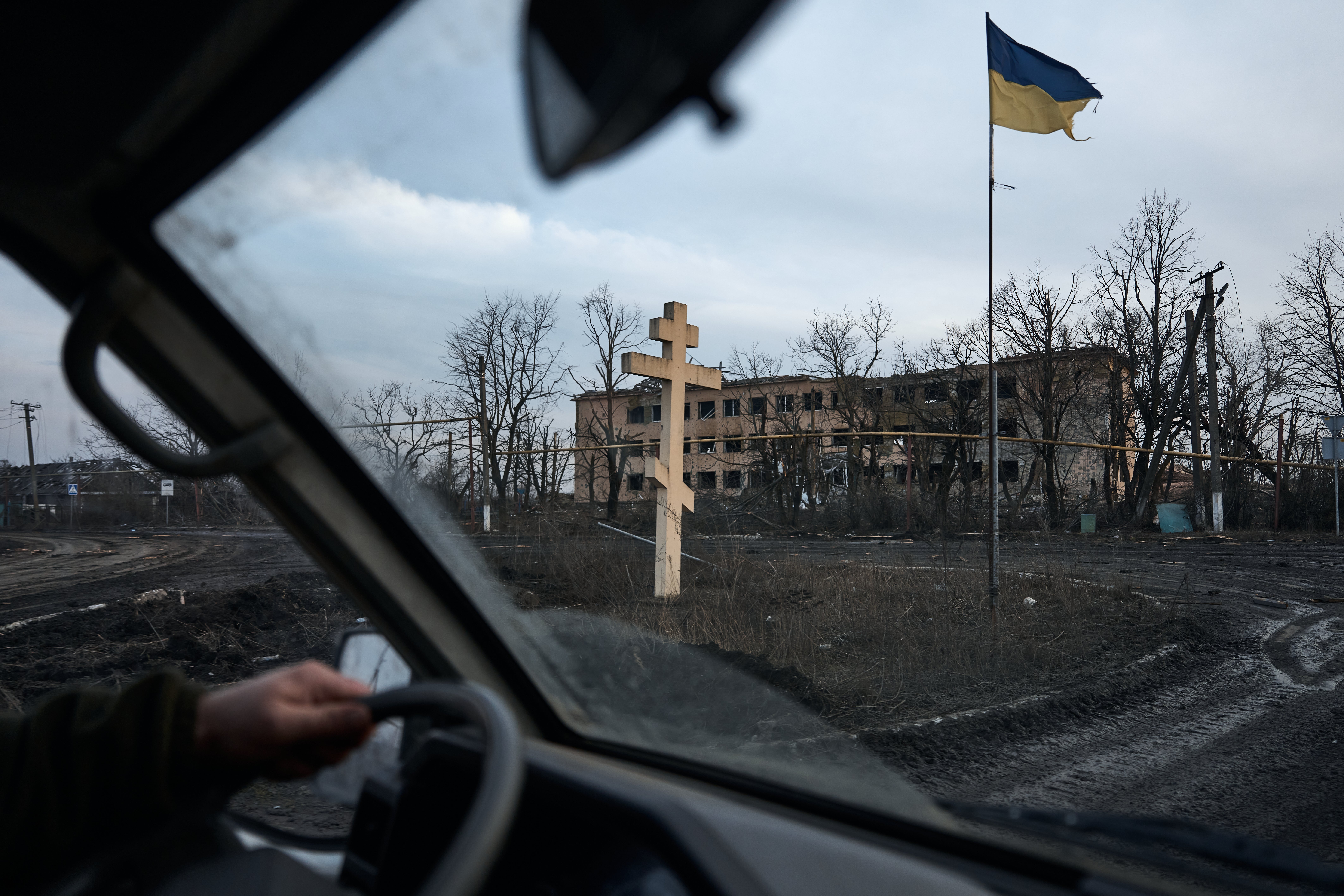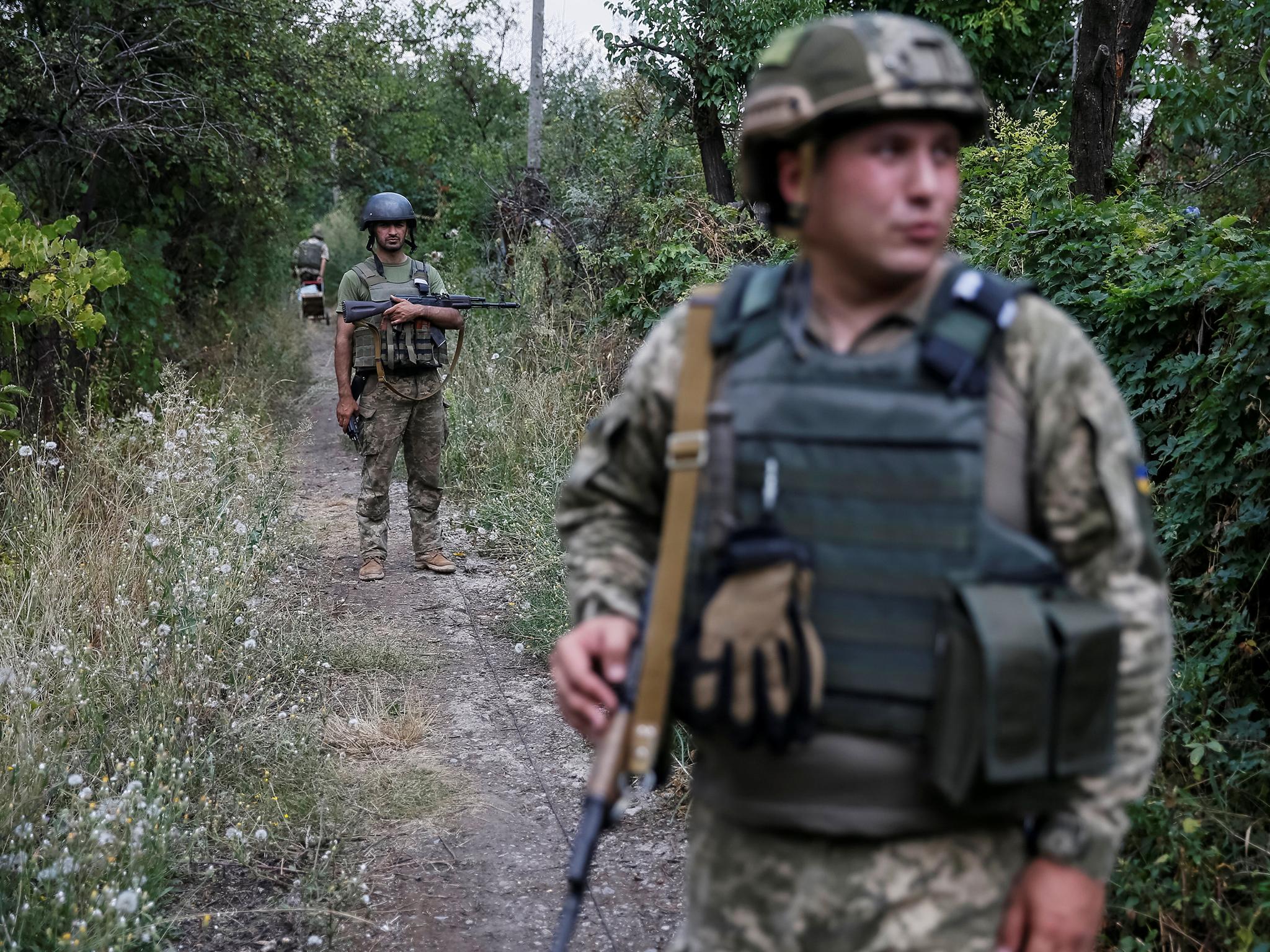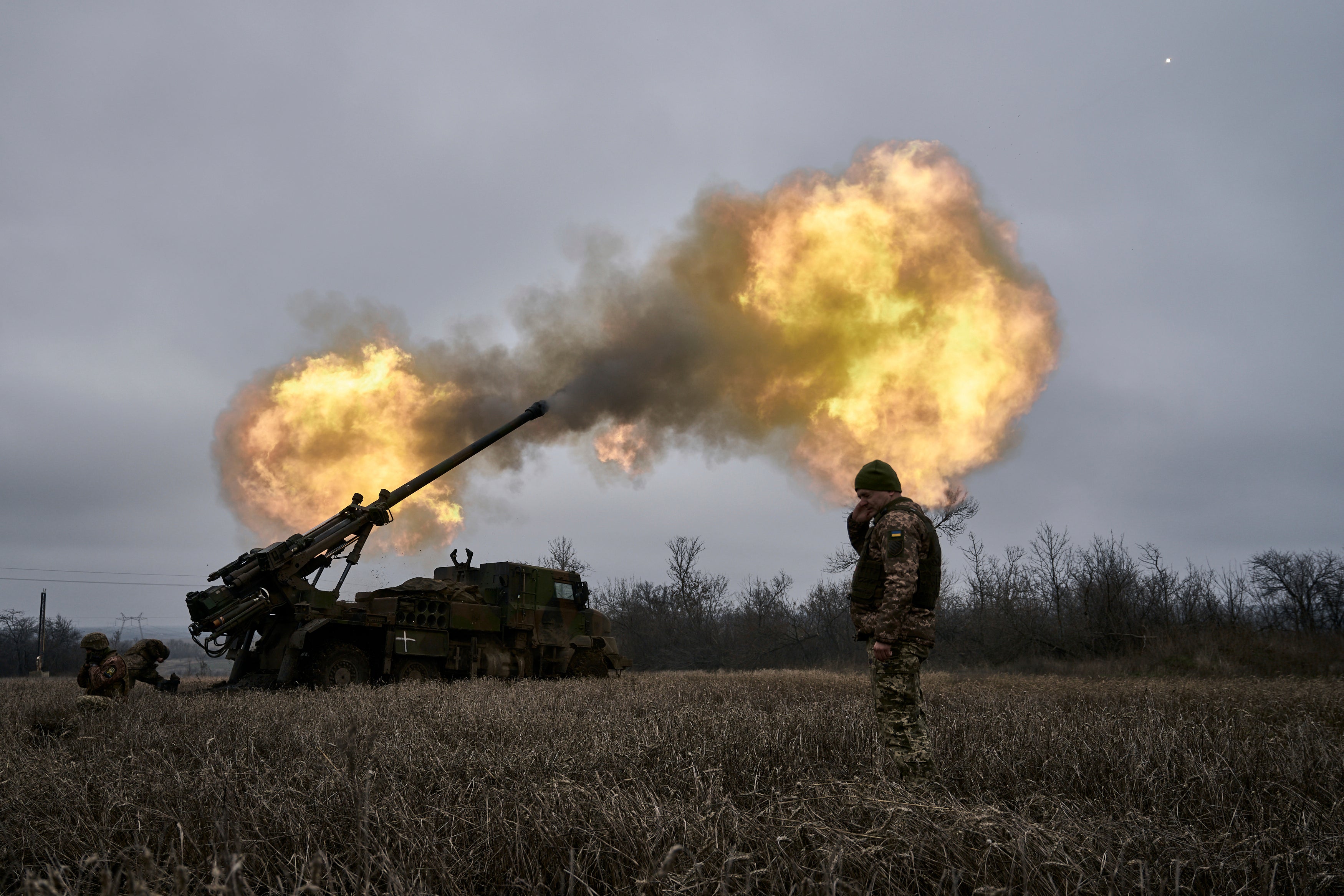Why Adviika’s fall is so important to Putin - and what it means for Ukraine and the war
Ukraine’s newly-appointed commander-in-chief announced on Saturday that his forces would be withdrawing from Avdiivka

Your support helps us to tell the story
From reproductive rights to climate change to Big Tech, The Independent is on the ground when the story is developing. Whether it's investigating the financials of Elon Musk's pro-Trump PAC or producing our latest documentary, 'The A Word', which shines a light on the American women fighting for reproductive rights, we know how important it is to parse out the facts from the messaging.
At such a critical moment in US history, we need reporters on the ground. Your donation allows us to keep sending journalists to speak to both sides of the story.
The Independent is trusted by Americans across the entire political spectrum. And unlike many other quality news outlets, we choose not to lock Americans out of our reporting and analysis with paywalls. We believe quality journalism should be available to everyone, paid for by those who can afford it.
Your support makes all the difference.Ukrainian forces are pulling out from the eastern frontline city of Avdiivka after a ferocious 10-year battle, the military chief has announced.
It is the first Ukrainian city to fall to Russia since the takeover of the besieged Bakhmut last May.
“Based on the operational situation around Avdiivka, in order to avoid encirclement and preserve the lives and health of servicemen, I decided to withdraw our units from the city and move to defence on more favourable lines,” wrote the newly-appointed Ukrainian military chief Oleksandr Syrskyi.
“Our soldiers performed their military duty with dignity, did everything possible to destroy the best Russian military units, inflicted significant losses on the enemy in terms of manpower and equipment.
“We are taking measures to stabilise the situation and maintain our positions. The life of military personnel is of the highest value.”
He added: “We will still return Avdiivka. Glory to Ukraine.”

Earlier this week, a crack 3rd Assault Brigade was rotated in to defend the city from a Russian encirclement after the Kremlin’s forces pushed into the northeast and south of the city.
But the Russian military appeared to be throwing thousands of newly-mobilised troops into the battle for Avdiivka, as well as relentlessly bombing the city, making its defence impossible.
Ukrainian journalist Yuri Butusov, who has just travelled back from Avdiivka, said Russian forces have had roughly 600 shells on the city in the past month.
Footage from earlier this week showed the moment glide bombs hit the city, devastating a sector in Avdiivka. Such videos have been frequent in the past fortnight.
Experts told The Independent that a lack of military deliveries from Western partners had had a direct impact on the Russian advance on Avdiivka.
Federico Borsari, a fellow at the Centre for European Policy Analysis, said the artillery shortage had forced Kyiv to ration its counter-capabilities, which in turn allowed Russian forces to move their forward positions closer to the city before storming it.

Moscow has appeared desperate to take Avdiivka with fighting reminiscent of the battle for Bakhmut, which fell to Russia after months of grinding urban combat.
President Vladimir Putin on January 31 stressed Avdiivka’s significance and said a group of military veterans had recently advanced ahead of the army to seize 19 buildings - a claim that, like other battlefield reports, cannot be verified.
But why Avdiivka and why now?
Avdiivka, which had a pre-war population of around 32,000 and is called Avdeyevka by Russians, has been a frontline city since 2014, when it was briefly occupied by Moscow-backed separatists who seized a swathe of eastern Ukraine.
Today, authorities say fewer than 1,000 residents remain, many sheltering in cellars and basements. Officials say not a single building remains intact. Avdiivka sits in the industrial Donbas region, 15 km (nine miles) north of the Russian-controlled city of Donetsk. Before the war, its Soviet-era coke plant was one of Europe’s top producers.
Russian-backed officials describe the city as a “fortress” with concrete bunkers. They say defenders are holed up in tower blocks that cannot be stormed head-on without huge losses, and are using the coking plant as a base and weapons depot.
A map of Avdiivka:
Ukrainian and Western analysts say Russia’s offensive on Avdiivka is taking a huge human toll. Last November, British military intelligence said the fighting had contributed to “some of the highest Russian casualty rates of the war so far”. “Every day there are new fresh forces, regardless of the weather, regardless of anything - of losses,” one member of Ukraine’s 47th Separate Mechanized Brigade told Radio Liberty.
“But no matter what, they keep crawling - literally over the bodies of their own.” Russian war bloggers, whom the Kremlin has brought under tight control, have acknowledged heavy Russian losses but alleged significant Ukrainian losses too.
They say Kyiv’s forces can be encircled if Russian forces can cut their last main supply line to the west.

Russia has been carrying out air strikes with targeting assistance from special forces, and using artillery, drones, helicopters and tanks as well as infantry, according to spare but regular Russian defence ministry updates.
Both sides see the city as key to Russia’s aim of securing full control of the two eastern “Donbas” provinces - Donetsk and Luhansk. These are among the four Ukrainian regions Russia says it has annexed but does not have full control of. Avdiivka is seen as a gateway to Donetsk city, whose residential areas Russian officials say have been shelled by Ukrainian forces, sometimes from Avdiivka. Seizing it could boost Russian morale and demoralise Ukrainian forces, which have made only incremental gains in a broad counteroffensive since June. Ukrainian President Volodymyr Zelenskiy himself visited in December.
“If the Russian army takes control of the (supply) road, the Ukrainian armed forces will evidently be forced to withdraw from Avdeyevka. That will be a great victory for the Russian army,” Sergei Markov, a former Kremlin adviser, said on February 5.
Mykola Bielieskov of the National Institute for Strategic Studies, an official think-tank in Kyiv, said taking Avdiivka would not decisively tip the situation in Moscow’s favour but “would make the situation more tenable for occupied Donetsk as a major Russian logistics hub”.
Join our commenting forum
Join thought-provoking conversations, follow other Independent readers and see their replies
Comments